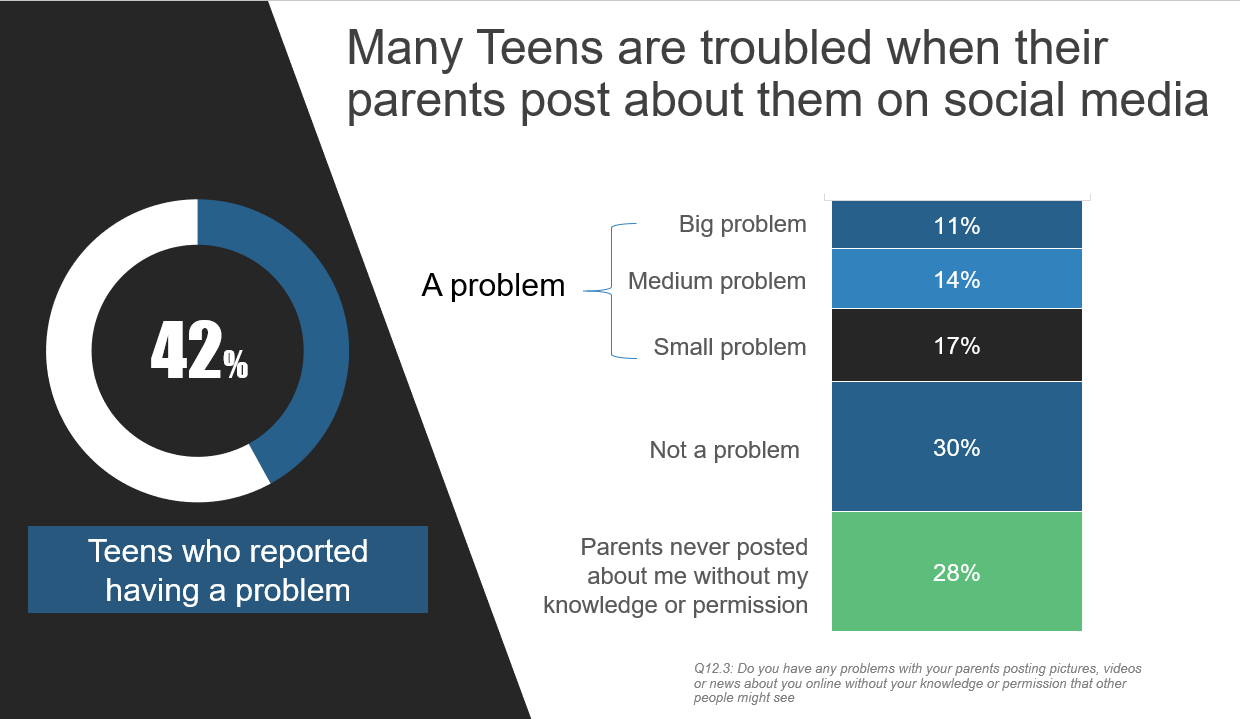- They don't lie
- They speak with a certain tone of voice
- They have conversations with kids
- They get kids involved in the arts
- They don't overshare online
They Don't Lie
According to a study published in the Journal of Experimental Child Psychology, lying to kids can carry that behavior over, making them more likely to be liars and having other problems. According to lead author Assistant Professor Setoh Peipei from NTU Singapore's School of Social Sciences, "Parenting by lying can seem to save time especially when the real reasons behind why parents want children to do something is complicated to explain. When parents tell children that 'honesty is the best policy', but display dishonesty by lying, such behaviour can send conflicting messages to their children. Parents' dishonesty may eventually erode trust and promote dishonesty in children."
The bottom line: Don't give empty threats or make things up because the truth is difficult to explain. To encourage good behavior, consider alternatives to lying such as offering choices, acknowledging children's feelings and giving information so children know what to expect.
They Speak with a Certain Tone of Voice
According to research conducted at Cardiff University in the U.K., when it comes to teenagers, the tone of your voice has a lot to do with compliance. According to the lead author of the study Dr Netta Weinstein, from Cardiff University, “If parents want conversations with their teens to have the most benefit, it’s important to remember to use supportive tones of voice. It’s easy for parents to forget, especially if they are feeling stressed, tired, or pressured themselves.”
Teenagers are less likely to cooperate and put effort into their mother’s requests when they are spoken in a controlling tone of voice. However, they are much more likely to engage with instructions that include a sense of encouragement and support for self-expression and choice.
The bottom line: If you want your kids to do what you say, don't say it like you're the boss. Use a supportive tone and offer encouragement. Check out this list of encouraging statements from Amy McCready, Founder of Positive Parenting Solutions. These are appropriate for children of any age. They seem corny, but they do work.
They Have Conversations with Kids
A study published in Psychological Science, MIT, among children between the ages of four and six, found that engaging young children in back-and-forth conversation is critical. Interactive conversation is more strongly related to neural processing and gives children more of an opportunity to practice their communication skills, including the ability to understand what another person is trying to say and to respond appropriately. It’s not just the number of words children hear that is significant for their language development.
According to Rachel Romeo, a graduate student at Harvard and MIT and the lead author, “The important thing is not just to talk to your child, but to talk with your child. It’s not just about dumping language into your child’s brain, but to actually carry on a conversation with them.”
Roberta Golinkoff, a professor of education at the University of Delaware School of Education, who was not involved in the study believes “You can talk to a child until you’re blue in the face, but if you’re not engaging with the child and having a conversational duet about what the child is interested in, you’re not going to give the child the language processing skills that they need. If you can get the child to participate, not just listen, that will allow the child to have a better language outcome.”
The bottom line: Converse with your kids in back-and-forth exchanges. Speak with them, not at them.
Findings show that all three arts activities have a significant association with children's self‐esteem and that children may experience higher self‐esteem if their parents are also involved in arts activities with them. This is important because self‐esteem is critical to kids' social and cognitive development and emotional health.
Further, the relationship between arts activities and self‐esteem is influenced by the children's engagement rather than their abilities. Arts engagement may well be important in supporting children's self‐esteem, which is a core marker of positive development, and therefore could play a role in reducing children's inequalities as they enter adulthood.
The bottom line: Music, drawing, painting, making things and reading for enjoyment are valuable in building your child's self‐esteem, which tends to decline as children enter adolescence. Enrolling your kids, especially tweens, in arts programs or artistic projects at home can build lifelong development and well‐being.
They Don't Overshare Online
Forty-two percent of teens say that they have had a problem with what their parents have posted about them on social media. More than one in ten teens even described it as a ‘problem.’
Have you heard of sharenting? According to Wikipedia, sharenting (or oversharenting) is the overuse of social media by parents to share content based on their children, such as baby pictures or details of their children's activities. It is related to the concept of "too much information".
Microsoft looked at the role of sharenting and concluded that parents should resist posting information about kids. Here is their full statement:
"To share or not to share is an individual family’s decision, but if the choice is to share, parents should be attentive, exercise discretion and not inadvertently reveal too much, including children’s real full names, ages, dates of births, home addresses, mothers’ maiden names, favorite sports teams, names of pets and photos, to cite a few examples. On one hand, these individual tidbits of personally identifiable information can be misused in online social engineering schemes, culled together to make children and other young people the targets of online fraud or identity theft, or in extreme cases may even lead to online grooming. Indeed, young children and infants in particular are prime targets for credit fraud. If someone were to take out a line of credit in a child’s name, odds are the child wouldn’t discover it for more than a decade later – until they applied for their own credit cards or other loans. Meanwhile, online grooming takes place when someone builds an emotional connection with a child in order to gain the child’s trust for sexual exploitation or abuse, or recruitment to terrorist or extremist causes."
Microsoft also looked at teens and their cries for help. Their advice? Parents are encouraged to become familiar with and, where appropriate, get involved in young people’s online activities. They should be welcoming of and open to conversations about their kid's online lives. It is important to listen and suspend judgment when approached by teens about online issues. Lastly, the should agree on any course of action together with their child.
The bottom line: “Share with care” should be everyone’s mantra both online and off. Oversharing about kids on social media can be dangerous because it puts children’s online privacy and potentially their physical safety at risk. Separately, teens may turn to their parents and other trusted adults for help with online issue, be supportive and in-the-know.
|
|
|



 RSS Feed
RSS Feed